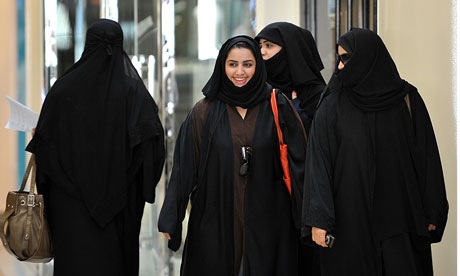Saudi Arabia Allowing Women to Drive: Too Little, Too Late

November 8, 2017
Recently Saudi Arabia announced that women will finally be able to get their driver’s licenses, beginning in June of 2018, which, to be fair, is a big step in the country’s history of the oppression of women. Letting women drive shows they are moving towards equality, but this is a long overdue move that only emphasizes the country’s need to move towards bettering the lives of their women faster.
The reason Saudi Arabia suddenly had a change of heart appears to be at least partly for economic purposes, because banning half of their population from buying cars was not good for their oil or car industry. However, the people in charge in Saudi Arabia should try to understand why it’s bad to ban women from driving, rather than use it as a last resort to boost their economy; women’s rights are more than just a benefit for companies.
They should continue to eliminate gender-based bans and limitations off of women in their country, because not only will it help the lives of the women there, but it helps the way the country runs as a whole.
The announcement that women will finally be able to drive represents a big advance for the women of Saudi Arabia, and the country now needs to continue to evolve, because nobody should be oppressed. The women in Saudi Arabia still have to fight for equality, but rarely receive any. They still cannot pick whom they marry, whom they divorce, and cannot make decisions without a male guardian. In addition to this, there are many more limits to women’s lives that belittle them and make it seem like they have no greater purpose other than being wives or mothers; they cannot try on clothes at stores, compete freely in sports, or go swimming in public areas that are not for women only.
A woman in Saudi Arabia cannot make many choices without a man, whether it is her father, brother, or even her son. She is powerless to a society dominated by males, and she has to depend on them for everything.
Women wear a niqab that covers their face besides their eyes, and the only skin they can also show is their hands. Now that women will be able to drive, the police will have to treat women on the road in a way so they have minimal interaction with each other. Police officers will have to talk to them differently, treat them differently and even look at them differently, making even getting pulled over an ordeal. These differences in how women are treated while driving will continue to affect how society treats them as a whole.
Women not only deserve to drive, but also to get married on the women’s terms, and to go outside without a man, like most of the world. As Saudi Arabia evolves into a more modern society, hopefully women’s rights is on the top of list of things to change.
Creative Commons photo source: https://www.flickr.com/photos/92278137@N04/10755450904/





Molly Jenne • Nov 11, 2017 at 1:58 pm
Saudi Arabia are boosting their economy by allowing women to drive is a win for their country and a win for women’s rights. I don’t think that it is ever too late for progress in society. At the same time, it’s also a thin line to judge other people’s culture. What seems weird to me might not seem weird to them. Of course, it is my wish, that all women around the world have equality in their own society’s. Thank you for your article; it was very interesting.